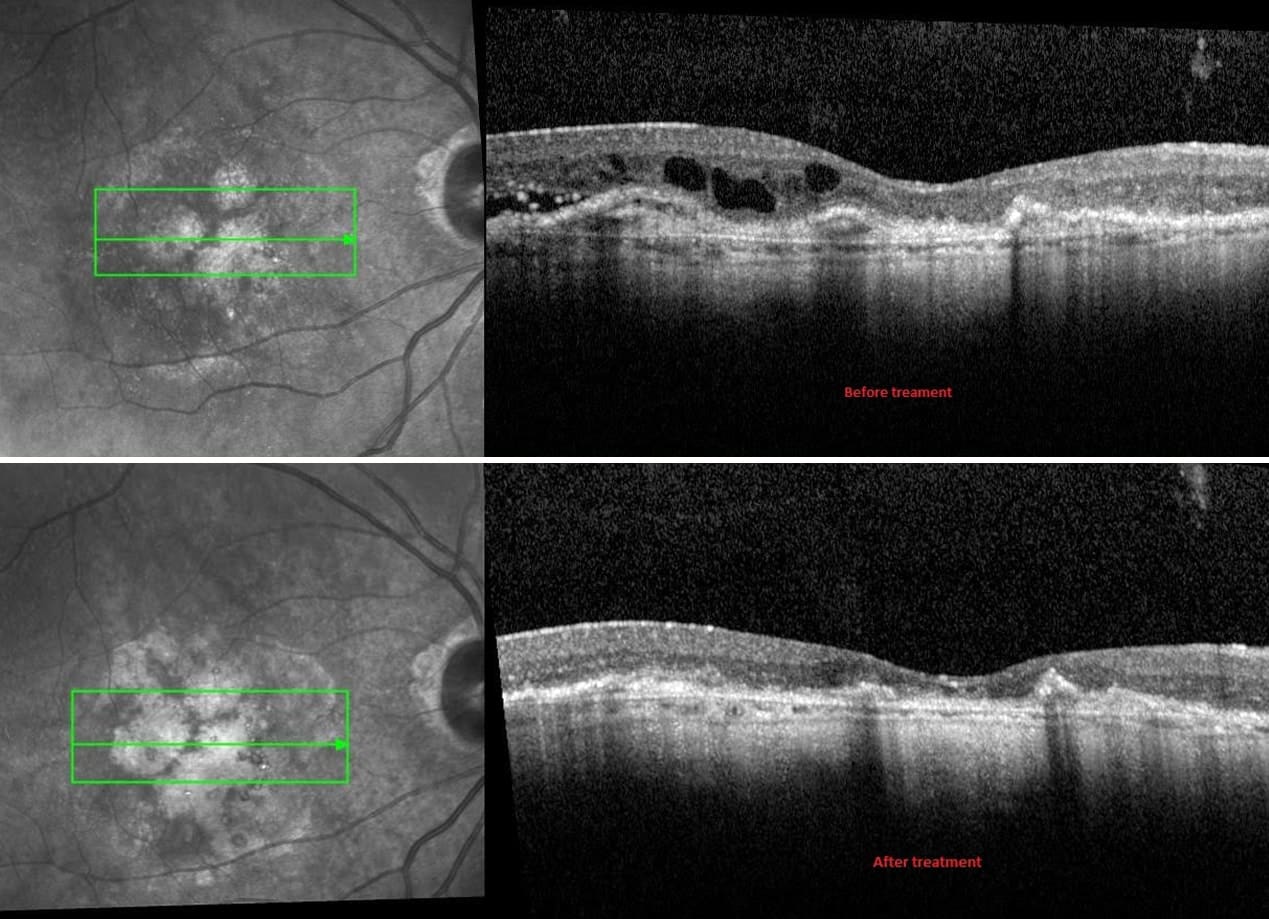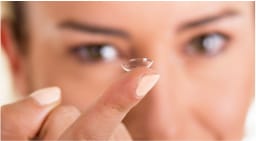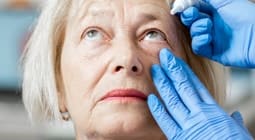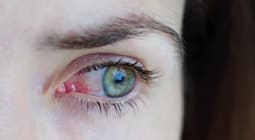What is Age-Related Macular Degeneration?
AMD affects the macula, which is the portion of the retina responsible for detailed sight and colour vision. When the macula degenerates, central vision is slowly lost, but the peripheral vision is unaffected. As we age, our chances of developing this serious ocular condition increase. Smoking, UV exposure, and high blood pressure all increase your chances of developing AMD.
Dry & Wet AMD
AMD comes in two forms: Dry and Wet
Dry AMD is the most common form and is typically milder than its wet counterpart. Dry AMD causes the retinal tissues in the macula to degenerate gradually over time. Dry AMD may progress to wet AMD.
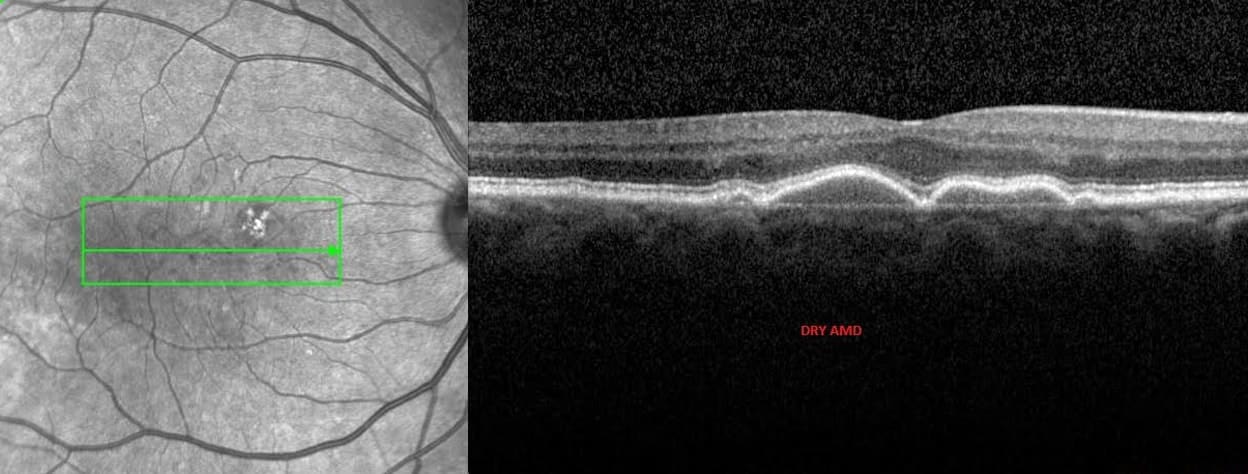
Wet AMD is less common but more sudden than its dry counterpart. Wet AMD weakens the blood vessels in the macula, causing them to leak blood and fluid. The disease progresses rapidly and accounts for about 10% of all AMD cases.
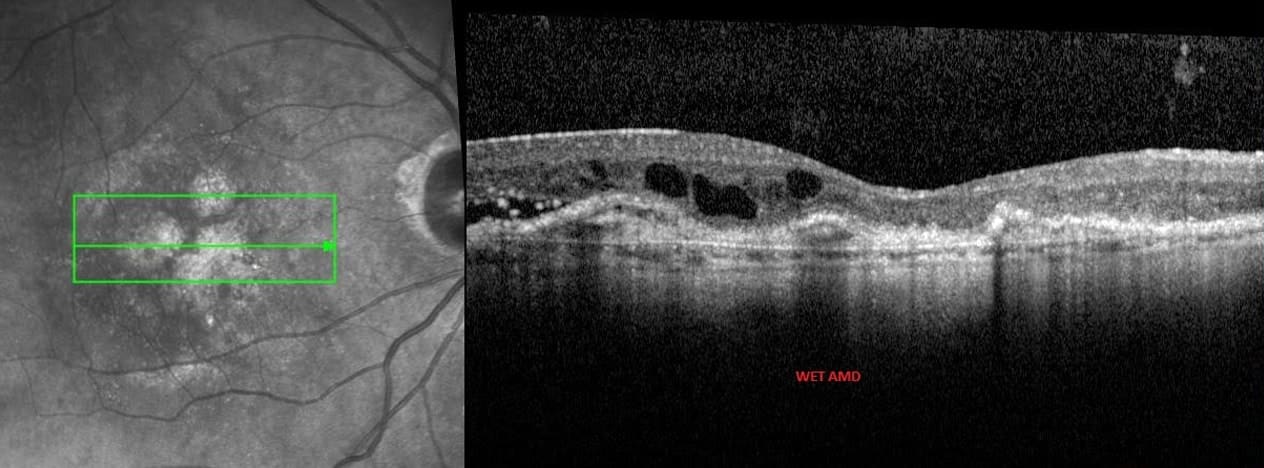
AMD Symptoms
In its early stages, AMD rarely exhibits symptoms but can be diagnosed using a comprehensive eye exam. The most common symptoms most patients with AMD notice are blurring or distortion of their central vision, which cannot be corrected using glasses or contact lenses. As AMD progresses, this blurring becomes more pronounced, interfering with the ability to read and recognize faces.
Other common symptoms include dark or blank spots in their vision, and perceiving straight lines as wavy lines.
AMD, if left unmanaged, can slowly steal your central vision.

AMD Prevention & Treatment
A comprehensive nutritional study (AREDS2) found that consuming select dietary supplements in addition to a healthy diet can help reduce your chances of developing AMD. Ensuring your diet is rich in vitamin A, vitamin E, zinc, lutein, and zeaxanthin can help protect your eyes from AMD and other ocular diseases.
One of the best things you can do to safeguard your vision is to have regular eye exams. Early detection is critical for minimizing and even preventing AMD related vision loss.
Dry AMD is currently managed using diet and lifestyle modifications, such as increasing exercise, wearing UV blocking sunglasses, and consuming more leafy greens. However, these strategies cannot cure AMD, only slow its progression. Any vision loss that has already occurred is permanent.
Wet AMD can be treated using injections, which can strengthen the blood vessels in the macula and prevent further bleeding.
For more information about AMD, including what you can do to prevent it, please speak to your optometrist during your next exam.
